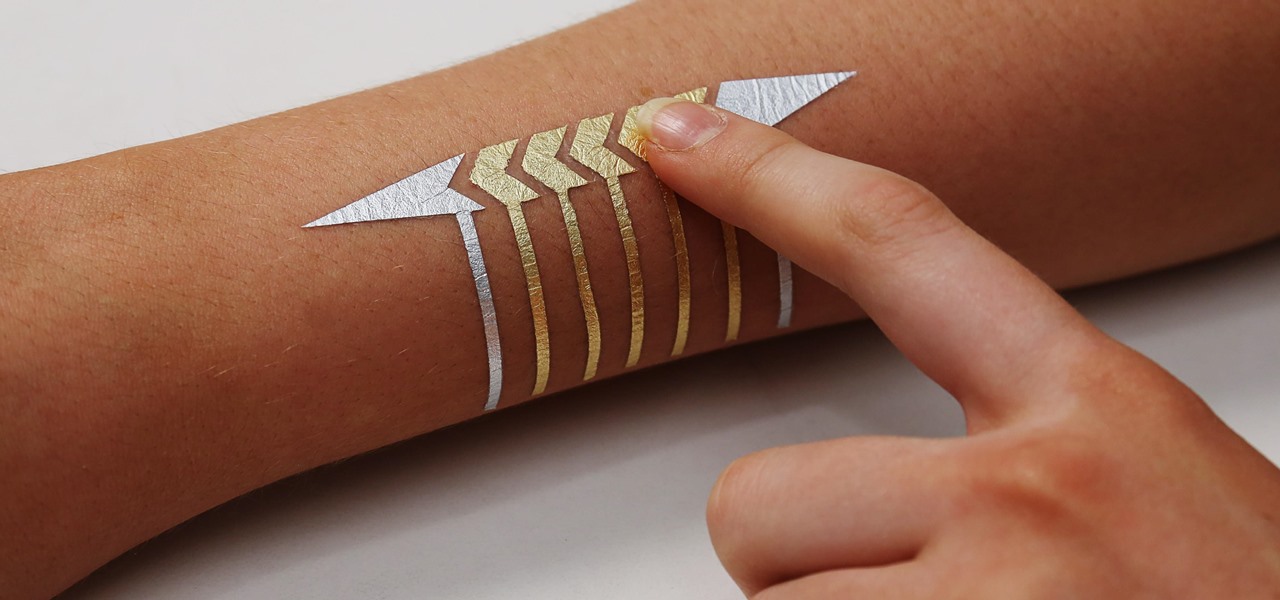
We're inching closer towards the singularity—that point where technology advances to the steepest slope of the logistic function S-curve and simply skyrockets at a rate we've never seen before. Somewhere along the way, the line between humans and the tech we rely on will become blurred, and MIT's latest project might very well be a step in that direction.
Believe it or not, researchers have created a stylish and practical method for controlling our devices with our own skin, taking wearables to the next level.DuoSkin, as it's called, is a result of a collaboration between Microsoft Research and MIT Media Lab—but while it may look like a cool metallic temporary tattoo on the surface, there's a lot more going on here.
DuoSkin can actually control your electronics in several different ways. There's a trackpad for interacting with elements on a screen, capacitive touch for swiping through menus, and even NFC for wirelessly launching websites and tasks with your smartphone.
While this may seem like vaporware from the distant future, DuoSkins's manufacturing process is intentionally cost-effective, making it a practical reality even today. Any CAD software can be used to design the circuitry, which can then be printed and coated with gold flake. From there, just apply DuoSkin like a temporary tattoo, then you'll be off and running.
Not only is DuoSkin high-tech, but it can also be quite stylish and trendy, so people might actually use this wearable in the real world. Aside from just interacting with devices, the technology behind DuoSkin can be used in applications that change colors based on your temperature, or simply light up with integrated LEDs.
While you'll see some thin wires included in the video above for some of the designs, remember that these are prototypes and wireless is definitely viable given the low amount of power that's needed.
It's a practical technology, so there's a good chance we might see this in the wild soon. As far-fetched as it sounds, the line between man and machine has already started to blur.



No comments:
Post a Comment